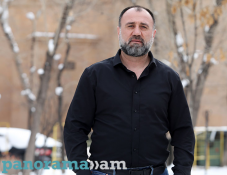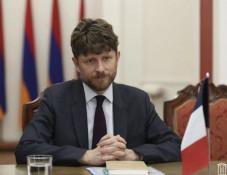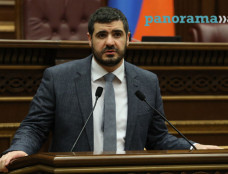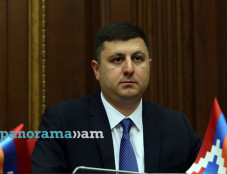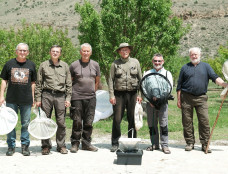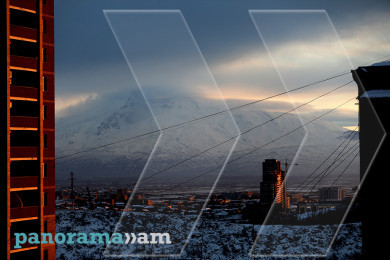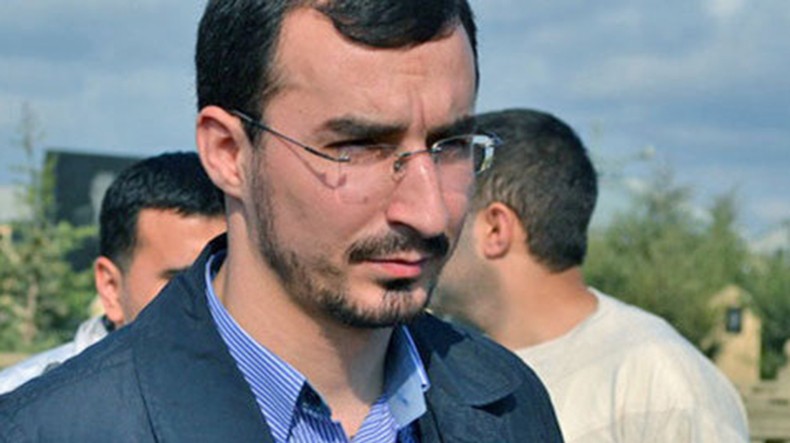
Media reports: Shia theologian Bagirzade’s detention in Azerbaijan and al-Nimr’s execution in Riyadh share many common features
The Muslim world continues to reverberate from the shock created by Saudi Arabia’s early January execution of Baqr al-Nimr, a dissident Shia cleric. Meanwhile, another outspoken Shia cleric, Taleh Bagir-zade, sits behind bars in Azerbaijan, Eldar Mamedov, a political adviser to the Socialists and Democrats Group in the European Parliament, writes for EurasiaNet.org .
According to Mamedov, Bagir-zade resembles al-Nimr in his willingness to attack entrenched authorities head on. Unlike the more politically quietist traditional Shia clergy, such as the Najaf-based Grand Ayatollah Ali Al-Sistani, both Bagir-zade and al-Nimr belong to a politically assertive strand of Shiism in the mold of the Ayatollah Khomeini, the late founder of the Islamic Republic of Iran.
He highlights that while Bagir-zade, like al-Nimr, opposes authoritarianism, neither of them is a liberal democrat. Bagir-zade has been more circumspect in his public statements about politics since his release in July. He acknowledges that, at this juncture, Azerbaijan is not ready to become an Islamic republic, but neither did he say he opposed the Iranian system. Overall, the uncompromising tone of his sermons and public statements, including his comparison of President Ilham Aliyev with the late Iraqi dictator Saddam Hussein, leaves little doubt about his position.
According to Mamedov, Saudi Arabia and Azerbaijan share many features in their form of ruling the state. On the surface, a Wahhabi monarchy like Saudi Arabia and a secular republic like Azerbaijan seem to have little in common. However, similarities abound in the way the leaders of the respective states wield power. Both have a dynastic political structure – officially in Saudi Arabia and de-facto in Azerbaijan. Both deal with dissent rather harshly, although to differing degrees.
As another similarity, Mamedov sites both states’ disproportionate dependence on the export of hydrocarbons, as a result of which collapsing oil prices augur growing fiscal difficulties for Riyadh and Baku. This, in turn, threatens to upset the existing social contracts in Saudi Arabia and Azerbaijan. Whatever the official rhetoric, al-Nimr and Bagir-zade are seen as threats not because of their pro-Iranian leanings, but because they have given voice to popular frustrations. Each of the authorities of the two states implemented their own measures to get rid of the ‘rabble-rousing’ dissidents amid the crisis.
Meanwhile, Forum 18, a Norwegian organisation promoting religious freedom, reports that four mosques in the village of Nardaran remain closed because they do not still have a state registration with the State Committee for Work with Religious Organisations. They were forcibly closed immediately after an armed assault on the village to suppress the Muslim Unity Movement and arrest its leader Taleh Bagirzade. The imam of Nardaran's closed Rahima Hanum Mosque is also among those in pre-trial imprisonment. Meanwhile, parishioners of the two Georgian Orthodox parishes remain without a priest. The State Committee has yet to allow Georgian citizen Fr Petre Khumarashvili to begin serving in Azerbaijan. The regional State Committee representative repeatedly refused to explain Forum 18 why the permission has been withheld so far.
According to another report by Forum 18, Shia Muslim theologian and prisoner of conscience Taleh Bagirzade was subjected to "severe torture" and a broken nose while in detention. The 31-year-old Bagirzade is complaining about the torture in prison, as well as denial of access to his lawyer and contact with relatives. No one at the Ombudsperson's Office was prepared to discuss the torture of Bagirzade.
Haqqin.az reports that Inglab Ahadov, the former deputy chairperson of the Islamic Party of Azerbaijan, was detained in the city of Salyan, Azerbaijan. He was reportedly sent to Baku. Khalil Ahadov, Inglab Ahadov’s son, said his house had been searched but nothing illegal was found. His father had left the party affairs two years ago for health issues, he added.
On 26 November 2015, armed clashes occurred between the leader of the Shia Islamists of Azerbaijan, Taleh Bagirzade (Taleh Bagirov), and his supporters and the police in the settlement Nardaran 25 km to the north of Baku. Seven were killed during the clashes, including two police officers and five believers. Law enforcement agencies said police had detained 15 Islamists including Taleh Bagirzade, chairman of Muslims Unity movement, during a special operation. Criminal case was initiated against all the detainees and four-month arrest was used as preventive measure against them.
According to the reports, the police carried out the special operation during the daytime prayer inciting the believers’ strong discontent. A group of Special Forces in black masks broke into the shrine Huseyniyye, where Muslims were praying, and threw smoke bombs inside. Then they pushed black sacks on Taleh Bagirzade and some others’ heads and dragged them out of the place. In addition, some drugs were given to several people, which made them faint. Immediately after that, mass unrest broke out in Nardaran. The village had no electricity and telephone communication, police cars and armoured vehicles blocked the streets. The locals also started to complain of the lack of food supplies because of the limited access of trading companies’ cars into the settlement. Nardaran was practically in blockade.
Newsfeed
Videos





